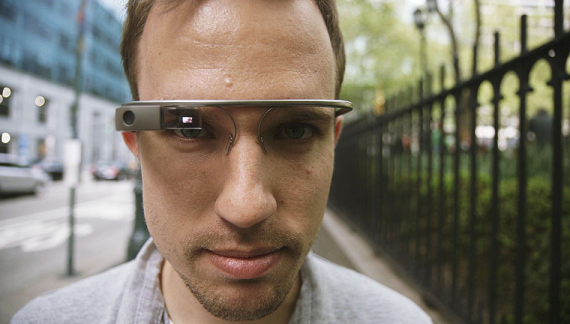
Whenever new technology comes out, there is always a familiar chorus of people shouting about their privacy being invaded. And, most of the time, I kind of ignore it. For the most part, people can avoid having their privacy violated by simply not participating. Nobody is forcing anyone to get a Facebook account, or even an e-mail address if they really don’t want one.
But with Google Glass I kind of see what they are talking about. There is something about having someone in front of you potentially taking video or pictures of you without you even knowing it that, frankly, skeeves me out a little. I’d like to address these issues before releasing the devices onto the world. And so would the government, apparently.
The Congressional Bi-Partisan Privacy Caucus sent a letter to Google CEO Larry Page on Thursday, asking him to clear up concerns that they have over potential privacy violations with Google Glass.
Since the announcement of the device in April 12, the eight members wrote, there have been “a number of articles written discussing not only the vast innovation of this technology, but also the privacy implications,” with the Caucus specifically pointing to articles from the Wall Street Journal and Forbes.
“As members of the Congressional Bi-Partisan Privacy Caucus, we are curious whether this new technology could infringe on the privacy of the average American,” the Caucus wrote.
The letter outlines eight questions that it would like Page to answer, which I have summarized below:
- Pointing to a 2010 incident in which Google was caught stealing private data, including the e-mails, passwords and text messages of the wireless home networks, while it was collecting data for its Street View feature on Google Maps, the Caucus asked how Google could prevent this from happening again with Google Glass.
- How does Google protect non users, and how does it protect the people who throw the device away and may not want their data to seen by others?
- If Google Glass uses facial recognition technology, can other people opt out of this?
- What requests for private data would Google reject?
- Will Google change its privacy policy to suit Glass?
- Would Google collect information about the Google Glass user without their knowledge?
- Was privacy factored in when designing Glass and will it be a priority in the future?
- Will Glass store data, and how will that data be accessed?
The letter, which is signed by Representative Joe Barton (R-Texas), John Barrow (D-Ga.), Steve Chabot (R-Ohio), Hank Johnson (D-Ga.), Walter Jones (R-N.C.), Richard Nugent (R-Fla), Bobby Rush (D-Ill.) and Loretta Sanchez (D-Calif.), asks for Page to respond to these questions by June 14th.
The issue of privacy on Glass is sure to be a big issue when the device is released. And problems are already popping up with certain apps.
For example, a developer named Mike DiGiovanni recently created an app that takes pictures by having the user simply wink.
While there is a light that flashes, being able to take a picture hands free will obviously cause distress among people who worry about having their picture taken without their knowledge.
Google Glass developer Robert Scoble has tried to downplay fears of privacy invasion, saying that it would be impossible to record someone without their knowing because the projector is always on.
“First of all, the microphone isn’t all that great. Second of all, I have to be right next to you, while wearing this weird contraption, looking straight at you, if I want to grab good video of you, all while the light in the Glass is on (if you are recording Glass’ projector is ALWAYS on, which warns you I’m doing something),” he wrote on his Google+ account.
Vator has reached out to Google but the company was not available for comment at this time.
You can read the entire letter below:
Letter to Google from Congress privacy group regarding Google Glass privacy
(Image source: http://www.theverge.com)
















